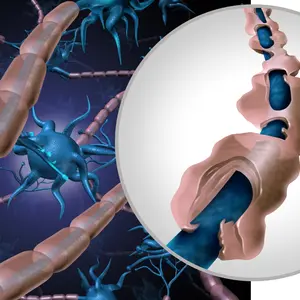

Chronic Conditions and Diseases

Chronic Conditions and Diseases
Synthetic Protein May Slow Alzheimer’s Progression
Experiments on mice with Alzheimer’s at the Okinawa Institute of Science and Technology (OIST) have made significant progress in slowing cognitive decline and improving memory using a synthetic protein called PHDP5 delivered through the nasal cavity that can cross the blood-brain barrier to directly affect the memory center. Researchers believe this protein could also prevent Alzheimer’s symptoms if administered early in the disease’s progression. The research was published in the journal Brain Research.
Brain cell communications depend on the health of nerve synapses and synaptic vesicles, which need the protein dynamin to function properly. In Alzheimer’s, the tau protein, which usually stabilizes structures inside neurons, detaches and binds to dynamin, disrupting synaptic vesicle recycling and causing communication problems between neurons. As the disease progresses, tau forms tangles that further damage synapses. PHDP5 works by preventing tau from interacting with dynamin. Researchers note that turning this discovery into an approved treatment for humans will likely be a long process.
According to Alzheimer’s Disease International, the disease is expected to affect 78 million people by 2030 and 139 million by 2050 globally, leading to high economic costs. Alzheimer’s is a complex disease caused by a mix of genetic, environmental and lifestyle factors, making it hard to treat, especially after symptoms appear.


 By
By







